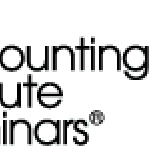- Отрасли: Accounting
- Number of terms: 7464
- Number of blossaries: 0
- Company Profile:
Information important enough to change an investor's decision. Insignificant information has no effect on decisions, so there is no need to report it. Materiality includes the absolute value and relationship of an amount to other information.
Industry:Accounting
A condition in which internal controls do not reduce to a relatively low level the risk that material errors or fraud may occur and not be detected in a timely period by employees in the normal course of their duties.
Industry:Accounting
Written records supporting journal entries. Credit memos support credits, while debit memos support debit entries.
Industry:Accounting
mitigating, -noun ''mitigation'' is reducing the force or intensity, thus making less intense or powerful.
Industry:Accounting
A statement of what the CPA does not know as opposed to what the CPA believes (positive assurance). A statement that the CPA was "not aware of material modifications that should be made to financial statements for them to conform with U.S. generally accepted accounting principles" is negative assurance used in review reports.
Industry:Accounting
The negative form of accounts receivable confirmation asks the client's customer to respond only if the customer disagrees with the balance determined by the client. The positive form asks the customer to respond whether the customer agrees or disagrees with the client's receivable balance. The negative form is used when controls over receivables are strong and accounts receivable consists of many accounts with small balances. The positive form is used when controls are weak or there are fewer, but larger, accounts.
Industry:Accounting
is audit risk not due to sampling. An auditor may apply a procedure to all transactions or balances and fail to detect a material misstatement. Nonsampling risk includes the possibility of selecting audit procedures that are not appropriate to achieve a specific objective. For example, confirming recorded receivables cannot reveal unrecorded receivables. Nonsampling risk can be reduced to a negligible level through adequate planning and supervision.
Industry:Accounting
